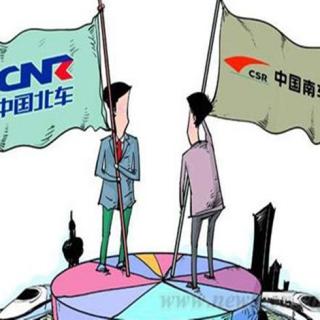
介绍:
CNR shares to be delisted, stocks swapped with CSR
China's top two high-speed rail makers CNR and CSR will officially swap stocks on Wednesday.
According to statements by the two companies filed with the Shanghai Stock Exchange, CNR shares will be officially de-listed from both the A-share market and the Hong Kong stock market starting Wednesday.
The stock swap ratio has been set at one CNR share for 1.1 shares of CSR.
After the stock swap, the new company will be called CRRC Corporation.
The new group will be formed and inherit all assets, liabilities, business, and staff from the two companies.
Members of the new companies board and supervisory board were settled today at a shareholders' meeting.
According to the plan, the chairman of the new group will be elected at the next shareholders' meeting which is scheduled for June 1st.
China home prices fall, top-tier cities warm up
China's real estate market remained anemic in April, with new home prices registering month-on-month declines in most cities.
According to data released by the National Bureau of Statistics, 48 out of 70 large and medium-sized cities saw new home prices dip in April from the previous month.
However, prices in first-tier cities edged up on the heels of government policy support.
Beijing, Shanghai, Guangzhou and Shenzhen saw prices inch up from March.
The average home price in first-tier cities increased 1 percent in April on a monthly basis, while those in second- and third-tied cities declined.
For existing homes, 34 cities saw price declines in April on a monthly basis.
BRICS development bank may open by year end
Anchor:
Chinese officials are suggesting the BRICS Development Bank could be operational before year's-end.
Vice-Finance Minister Shi Yaobin also says membership in the bank will not be limited to the group's five member states.
The first meeting of the bank's board of governors has been set for early July during the next BRICS summit in Russia.
Leaders from Brazil, Russia, India, China and South Africa announced plans to establish the bank last summer.
It has a seed of 100-billion US dollars and is being based out of Shanghai.
For more on this new bank, CRI'S Paul James spoke earlier with Mike Bastin, director of China Business Center based in London.
Back Anchor:
That was Mike Bastin, director of the China Business Center based in London, speaking with CRI's Paul James.
China's yuan strengthens to 15-month high against USD
China's yuan strengthened to its strongest level in 15 months against the U.S. dollar on Monday after the greenback depreciated amid concerns about the US economy.
According to the China Foreign Exchange Trading System, the central parity rate of the yuan strengthened by six basis points to 6.11 against the greenback.
The dollar declined against other major currencies on the heels of weak U.S. economic data.
The yuan's central parity rate is based on a weighted average of prices offered by market makers before the opening of the interbank market each trading day.
The spot rate is allowed to trade within 2 percent above or below the central parity rate.
Chinese expected to be New Zealand's biggest tourist spenders by 2021
China is forecast to lead a nearly 50 percent surge in overseas visitor spending in New Zealand in the next 6 years.
According to a report by the Ministry of Business, Innovation and Employment, total international visitor spending is projected to hit 8.25 billion U.S. dollars by 2021.
Visitor arrivals are also expected to increase 4 percent a year and hit some 3.8 million USD in 2021.
The report say that, as the Chinese visitor market is maturing and visitors' travel patterns are changing, China is expected to outstrip Australia by 2021 and become the largest tourist market in terms of expenditure.
Chinese bus maker to open plant in Venezuela
Chinese bus maker Yutong is to open a plant in Venezuela in October.
It will be the most modern bus manufacturing plant in Latin America and the Caribbean.
The Yutong plant forms part of Venezuela's national transportation policy.
According to one government official, the factory will be built in the western state of Yaracuy and will have an assembly capacity of 35-hundered buses a year.
Currently, at least 90 Venezuelan cities have bus transportation systems.
Yutong runs all of these systems.
With the new plant, Venezuela will be able to produce its own buses and is likely to export them in the future.
大家还在听

